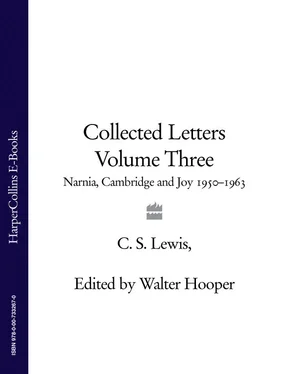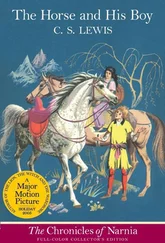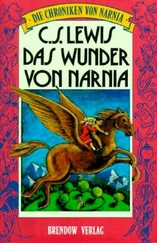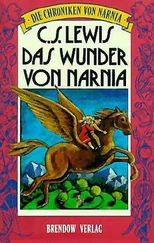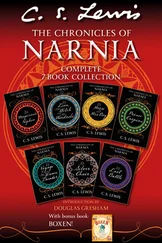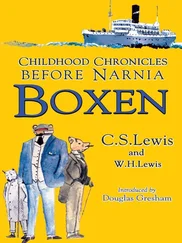C.S.L.
TO MARY MARGARET MCCASLIN (W): TS
REF.238/51.
Magdalen College,
Oxford.
15th May 1951.
Dear Mrs. McCaslin,
Thank you for your kind letter of the 11th.
A book of reference tells me that John Flavel came from Dartmouth and kept a private school. 92 I have never heard of him before nor seen his books. But I have no difficulty in believing that he may be excellent. The past is full of good authors whom the general literary tradition has ignored and whom one only finds by chance. There is a great element of chance in fame. With all good wishes,
yours sincerely,
C. S. Lewis
TO GEORGE ROSTREVOR HAMILTON (BOD):
Magdalen
17/5/51
My dear Hamilton
Of course I’ll write an introduction to Ouroboros. 93 I’d deserve to be hanged if I wouldn’t. Mind you, one doesn’t always write best on what one most keenly and spontaneously enjoys. One writes best on the authors who are one’s acquired tastes (as happy love produces fewer great poems than mess and fuss like Donne’s or obsession like Catullus!) But I’ll do my damdest. When the matter is fixed (and I leave you to go on into that) can you come down for a night and talk it over? I shall want to pick your brains: especially for testimonies which I can quote from other admirers, yourself, and lames Stephens etc. 94 I remember the other Eddison v. well: give him my duty. 95
Yours
C. S. Lewis
TO RUTH PITTER(BOD): TS
Magdalen College,
Oxford.
18th May 1951.
Dear Miss Pitter,
It is I who have to thank you for making my little party a success. You supplied the fire and air. I wrote down Young’s 96 address, and will write: many thanks. My own MS will go to you as soon as it is typed. Don’t let it be a bother: what I want is only a Yes or a No or Doubtful . It is very kind of you to undertake the job, for a job of course it is. Kindest regards to Miss O’Hara and yourself.
Yours sincerely,
C. S. Lewis
TO ANDREW YOUNG (BOD): 97 TS
Magdalen College,
Oxford.
18th May 1951
Dear Canon Young,
May a stranger take the liberty of offering his thanks for your poems? You appear to me a modern Marvell and a modern marvel: there has been nothing so choice, so delicate, and so controlled in this century. Every weir I see in this town of rivers now ‘combs the river’s silver hair’. 98 Thank you very much indeed.
Yours sincerely,
C. S. Lewis
TO MARY VAN DEUSEN (W):
Magdalen College
Oxford
25/5/51
Dear Mrs. Van Deusen
About yr. idea that error in upbringing might be partly responsible for Genia’s trouble, does any trained psychologist agree with you? From what I hear such people say I shd. v. much doubt whether it cd. have had any ‘depth’ effect. Do not burden yourself with any unnecessary cares: I suspect you are not at all to blame. I pray for Genia every night.
About loving one’s country, you raise two different questions. About one, about there seeming to be (now) no reason for loving it, I’m not at all bothered. As Macdonald says ‘No one loves because he sees reason, but because he loves.’ 99 Or say there are two kinds of love: we love wise & kind & beautiful people because we need them, but we love (or try to love) stupid & disagreeable people because they need us. This second kind is the more divine, because that is how God loves us: not because we are lovable but because He is love, not because He needs to receive but because He delights to give.
But the other question ( what one is loving in loving a country) I do find v. difficult. What I feel sure of is that the personifications used by journalists and politicians have v. little reality. A treaty between the Govts. of two countries is not at all like a friendship between two people: more like a transaction between two people’s lawyers.
I think love for one’s country means chiefly love for people who have a good deal in common with oneself (language, clothes, institutions) and is in that way like love of one’s family or school: or like love (in a strange place) for anyone who once lived in one’s home town. The familiar is in itself a ground for affection. And it is good: because any natural help towards our spiritual duty of loving is good and God seems to build our higher loves round our merely natural impulses—sex, maternity, kinship, old acquaintance, etc. And in a less degree there are similar grounds for loving other nations—historical links & debts for literature etc (hence we all reverence the ancient Greeks). But I wd. distinguish this from the talk in the papers. Mind you, I’m in considerable doubt about the whole thing. My mind tends to move in a world of individuals not of societies.
I’m afraid I have not read E. Gough’s book. 100 With all blessings.
Yours
C. S. Lewis
TO SEYMOUR SPENCER (P):
Magdalen College.
29/5/51
Dear Dr. Spencer
Thank you v. much for letting me see the MS. of your article. 101 My reading confirms the view I formed on hearing the earlier form of it read, that it is a most interesting and important piece of work.
On p. 3, para 4 the first sentence is a little obscure. It might mean that we shd. expect the admission of conscious mind to exclude freedom but it doesn’t inevitably do so. I take it that is not what you meant. Wd. it run better ‘the mere admission of a conscious mind leaves open the possibility of freedom’?
I still disagree with yr. view that bodily procreation is a consequence of the Fall, taking my stand, if you like, on Aquinas ( Summa Theol . Pars I a. Quaest xcviii): 102 and I think it a grave, tho’ not a fatal objection to your view that the same command crescite et multiplicamini 103 is addressed to beasts ( Gen . I.22) 104 and to Man ( ibid 1.28). But I hope your view will be published, and discussed by better authors than me. I’m sorry that I have no record of the Number of the XXth Century in wh. my article appeared: and as you see, the silly asses don’t put it on the off-print.
With all good wishes and many thanks.
Yours sincerely
C. S. Lewis
TO NATHAN COMFORT STARR (P):
Magdalen College,
Oxford.
29th May 1951
Dear Starr
This is the sort of thing that makes my blood boil. The events at Rollins College 105 seem to me to concentrate into one filthy amalgam every tendency in the modern world which I most hate and despise. And, as you say, this kind of thing will put an end to American scholarship if it goes on. Why then did I not cable to an American paper as you suggested?
My dear fellow, consider. What could unsolicited advice from a foreigner do except to stiffen the Wagnerian party by enlisting on its side every anti-British and every anti-God element in the state? You are asking me to damage a good cause by what would, from an unauthorised outsider like me, be simply impertinence. In a cooler moment (I don’t expect you to be cool at present) you will be thankful I didn’t. God help us all. It is terrible to live in a post-civilised age.
Yours
C. S. Lewis
Dear Starr
If you think there is anything to be gained by publishing my letter, you are at liberty to do so. My brother thanks you for your remembrances, and sends his lively sympathy.
But not the condemnatory part without the parts saying it wd. be impertinent of me to address a public on the matter.
C.S.L.
TO EDWARD A. ALLEN (W): TS
RER25/51.
Magdalen College,
Oxford.
4th June 1951.
My dear Mr. Allen,
Читать дальше
